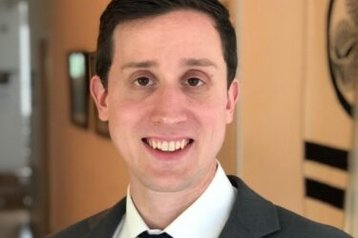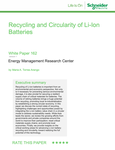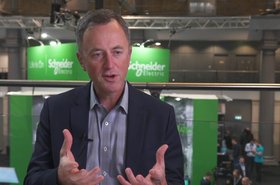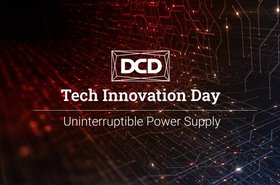Sustainability is one of those topics that nobody in our industry can afford to ignore. With the decades of self-regulation enjoyed by the data center sector giving way to more stringent and aggressive targets and measurement criteria (often not set by local legislation, but by customers themselves), a joined-up industry approach is vital to ensure that both our industry and the planet survive.
Our latest guest in the DCD>Talks hot seat is Alex Rakow, sustainability lead for cloud service providers at Schneider, who alongside DCD’s Emma Brooks, explores how these seemingly competing forces can work together to meet common goals. Rakow begins by pinpointing where his interest in sustainable energy was sparked:
“I got into energy resilience by working on disaster recovery. We went into New York City, which was my home at the time, following Superstorm Sandy, and I got to see not only the human toll of the storm but also the effect it had on energy infrastructure – the relationship between energy infrastructure and human suffering.”
He goes on to tell us that before we can please our stakeholders, the first step is identifying who they are. He identifies three basic types:
“There are customers, looking for their data center operator to help them achieve their own sustainability goals. They want to make sure that when they engage in purchasing cloud services and colo space, they're not blowing their own sustainability programs and goals out of the water.
“There are investors, who want to satisfy both their own stakeholders and investors. There are a lot of challenges in terms of public perception around the sustainability of the data center industry. Investors also want to know that they're investing in solid businesses.
“Then there are government actors. In the data center industry, we've avoided significant regulation by being ahead of the curve and demonstrating sustainability ourselves. But we're seeing more come into place now that impact our industry. In each case, it's about figuring out what metrics are important to that stakeholder and how to meaningfully and reliably measure those metrics inside your data center and report them to those stakeholders in a way that will be trusted and meaningful.”
Rakow explains that contrary to popular belief, the data center industry has often been ahead of authorities in sustainability, with its own self-regulation staving off government regulation. However, in a time of climate crisis, things have changed:
“Now the state is catching back up, we're seeing the first phase of government regulation, which is disclosure. Some governments, like Singapore, have gone beyond requiring disclosure. It's a challenge in terms of reporting, but it will also lift the curtain for data center operators – stakeholders are going to have a better look at what your real progress is.”
A major upcoming challenge for the data center industry is the adoption of Scope 3 emissions targets outlined by the US Environmental Protection Agency (EPA) and defined as “activities from assets not owned or controlled by the reporting organization, but that the organization indirectly affects in its value chain.”
Rakow warns that this will require additional consideration in the coming years: “The embodied carbon of the materials and equipment that go into building the data center, now becomes the vast majority of their carbon footprint. It's the biggest part of the pie that remains, and the biggest sustainability or carbon emissions challenge still to be unlocked.”
But whilst acknowledging the power constraints that the industry faces, Rakow points out that there are distinct benefits for operators to think green:
“Remember – sustainability itself has business value. For data centers, the more efficient we are, the lower the energy costs, which are important to the bottom line of data centers. We tend to think that all the low-hanging fruit has already been plucked from an energy efficiency standpoint but we always have the opportunity to become more efficient.”
He even goes so far as to suggest that the very future of the sector could depend on it:
“There's a connection between sustainability and business continuity; the effects of climate change are not good for the data center business. The more we can each do to help mitigate climate change, the better position we're going to be in, in terms of business continuity and continued growth.”
In the interview, Rakow explores common problems faced by stakeholders, suppliers, and customers alike, and where they can create synergies. He explores the myriad of regulations and reporting requirements facing international data center operations and discusses the decision process for what metrics need to be quantified. Rakow also discusses the work being done at Schneider, in partnership with some of the industry’s biggest players, to create a common standard to drive sustainability forward with a collective outlook.
If you’d like to watch the full DCD>Talk with Alex Rakow of Schneider, click here




